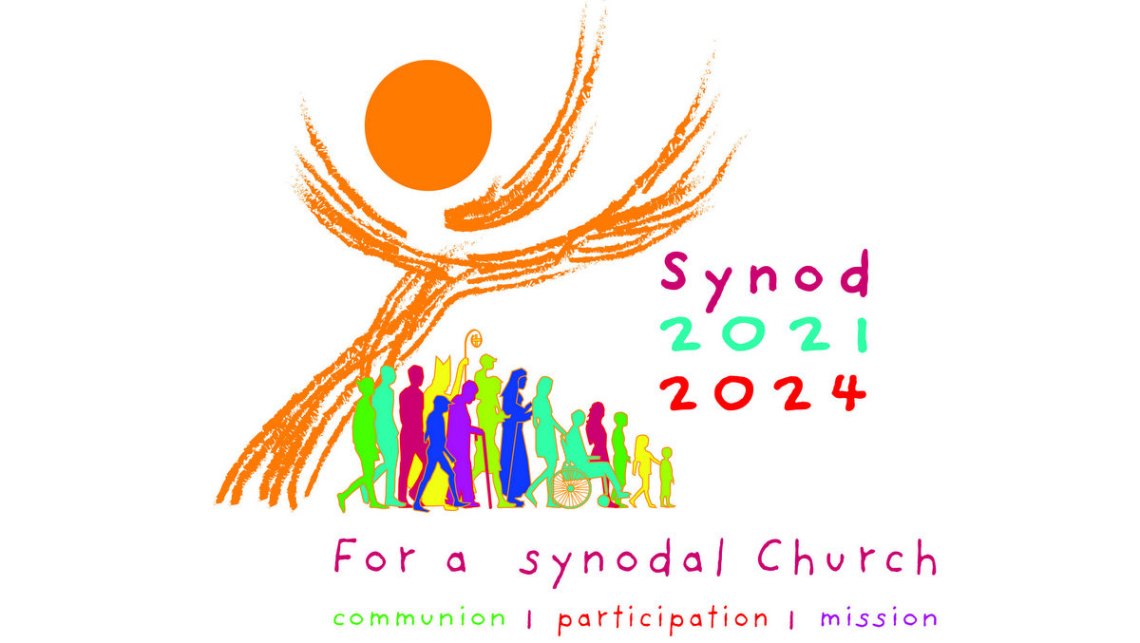From the Bishop - November 2022

Pope Francis has introduced us to “synodality” in a new way. The term is old, but it has been invested with a new importance in the Holy Father’s plan for the next worldwide synod. Begun late last year, the first phase of that synodal process has been completed. You might find the report of what has been happening in our diocese helpful.
The synod was announced in May 2021. Its title is “Synod 2021-2023: For a synodal Church: communion, participation and mission.” The word “synod” is understood to mean “to be on a journey together” or to walk together. In the history of the Church, it has been used interchangeably with the word “council.” That helps us realize that we have been involved in synodal discussions for many years. Our parish and diocesan pastoral councils and finance councils, as well as the diocesan Presbyteral Council, which assists the bishop in offering its counsel regarding matters in the diocese, are all manifestations of synodality — consultation that involves sharing ideas and listening to each other.
The current synod was launched with a worldwide consultation. We received guidance from the Office of the Synod in Rome in the fall of 2021 as to how this consultation would take place. The fundamental question proposed was this: “A synodal Church, in announcing the Gospel, journeys together. How is this journeying together happening in your particular church? What steps does the Holy Spirit invite us to take in order to grow in our journeying together?” Prayer was to be at the heart of these consultations. We were asked to listen to each other and hear from our conversations what the Holy Spirit was guiding us to do. Pope Francis very much wanted to emphasize that the work of the synod is a spiritual exercise, not a political one. Discussion in the consultation was understood to be grounded in prayer, not advocacy. The consultation was intended to help us all to listen to the Holy Spirit who guides the Church.
The period of time within which this wide consultation would take place was to occur within the first months of 2022. That, of course, would include winter, a time of year in Maine when it can be difficult to gather folks together. All the same, we began our consultations throughout the diocese. We asked each parish to hold a consultation. It was suggested that the parish pastoral council could be the core of such a discussion. We also had consultations with many groups including university students, youth groups, various ministries such as our faith formation leaders and the board of Catholic Charities Maine, as well as our Hispanic Ministry. Additionally, we consulted the Episcopal Council, the Diocesan Pastoral Council, and the Presbyteral Council. Each of these groups provided feedback regarding their opportunity to pray, listen, hear each other, and reflect on how the Spirit is calling us to move forward as Church. We also offered an online survey to help others to participate in this consultation.
The results of these surveys and all the consultations were reviewed by a committee charged with the task of providing a unified summary. This work was aided by the assistance of the Diocesan Pastoral Council. The results are now published on the diocesan website. A summary of the United States Conference of Catholic Bishops’ national synthesis is linked on that same page.
Here, I will simply raise up a few key findings:
The active Catholic community in Maine considers the celebration of the Eucharist to be central to the life of the parish. Service to others and stewardship opportunities are seen as extensions of that eucharistic gathering which is the source and summit of Christian life. The National Eucharistic Revival and the efforts to regather the faithful after the pandemic have helped to emphasize the importance of the Church being a community gathered by the real presence of Jesus the Lord in the Eucharist.
The consultation also indicates areas where improvement can be helpful. Many young people feel underappreciated. We need to acknowledge that youth are the Church of now, not just the future. That points to a wider need to involve more people in the life of our parishes. The summary shows that encouraging teamwork in our parishes and institutions will be helpful. We need to develop co-responsibility through inviting parishioners not presently involved in parish activities, as well as non-practicing Catholics, to create with us a shared ownership of a successful parish. It is a task that challenges all of us in the Church.
This was the first step in this synod. It will continue over the next year. There will be further consultation and opportunity to participate. This first period of consultation, however, has had its own rich rewards. Many of those consulted commented on the fact that praying to the Holy Spirit for guidance and listening to each other carefully were the most fruitful parts of this exercise. I am reminded of what I said in the homily with which we opened the synod here in Maine: “What we do in this synodal process must be about conversion, helping each of us, with the guidance of the Holy Spirit, to commit ourselves to seeking ways in which the mission of the Church might be more focused, generous, and fruitful.”
In this time of thanksgiving, know of my prayers for all of you and my gratitude for your faithfulness.
God bless,
Bishop Robert P. Deeley, JCD










